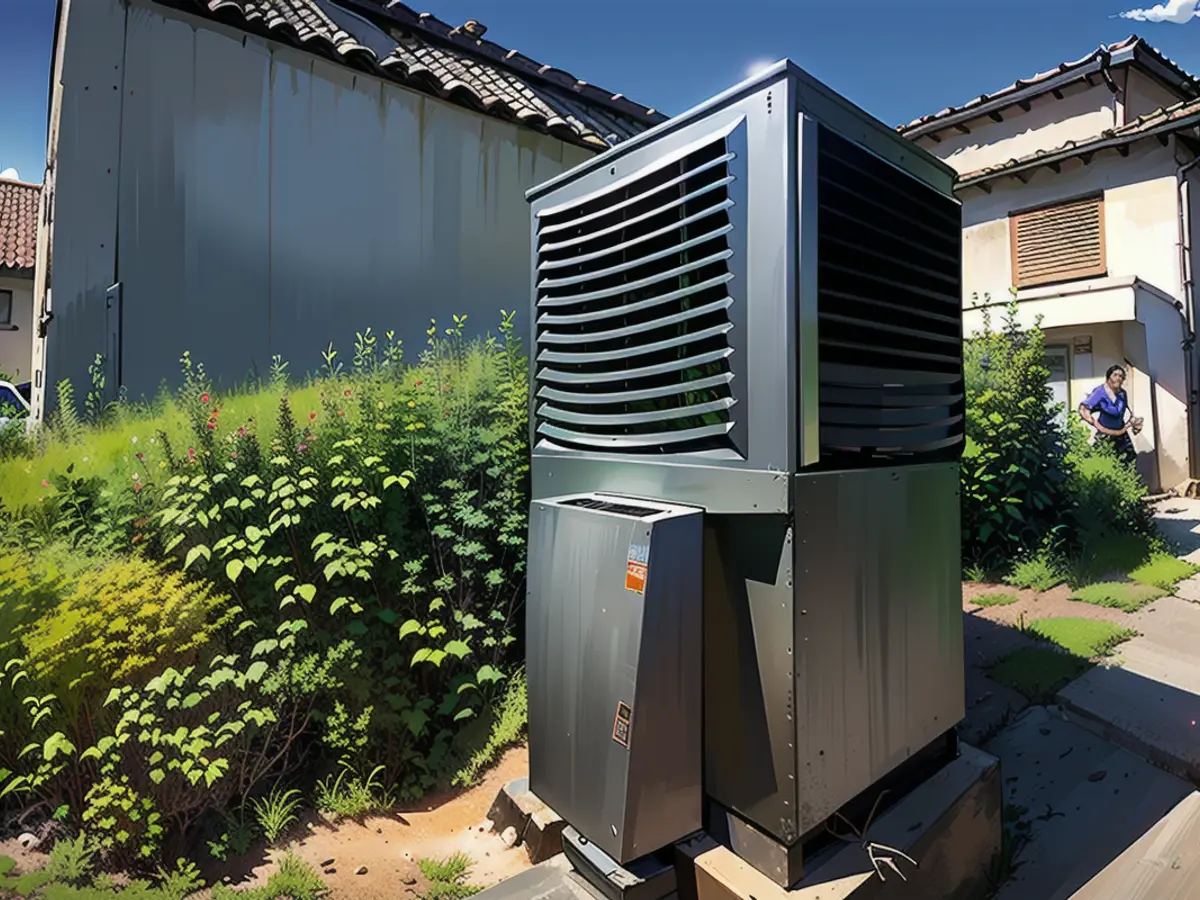Two-thirds of new buildings utilize heat pumps for their heating needs.
In modern structures, oil heating systems no longer have a significant impact. Conversely, gas still holds the fort as a primary energy source. Nonetheless, heat pumps are the real deal - their prevalence is skyrocketing. As it stands, renewable energy dominates the heating realm in four out of every five newly constructed residential edifices.
Germany’s building market has embraced heat pumps wholeheartedly. As per the most recent statistics from the Federal Statistical Office, an astonishing 64.6% of the 96,800 houses completed in the previous year relied on heat pumps for warmth. This marks an overwhelming progress in comparison to 2014's figures, where heat pumps held only a meager 32% share. While the momentum remains unbroken, the percentage of heat pumps in authorized new houses rises to 76.3%.
The focus is primarily on detached and semi-detached dwellings, while multi-family homes opt for gas heating more frequently. The second primary source for new buildings, in contrast to last year, was gas, occupying 20.1% of them. That's half of what it used to be almost a decade ago. Additionally, approximately 8.2% of buildings now use district heating, and around 4.8% depend on biomass or pellets as renewable energy carriers.
Oil heating systems are now rarely implemented, with just 300 new buildings incorporating them, translating to a minuscule 0.3% share. To supplement the heat, renewable energy is commonly deployed. Whether as a primary or secondary resource, shortly, more than 7 out of 10 (79.6%) new residential homes employ renewable energy.
The domestic manufacturing of heat pumps underwent a slump in 2023. Around 400,100 units came off the assembly line, marking a 14% rise over the previous year. But the epic first-quarter production of 132,000 heat pumps could not be replicated. It crumbled down to only about 54,000 units in the last quarter. Moreover, there was a significant downturn in foreign trade last year. The rationale? Relaxed regulations governing renewable energy involvement in the construction sector.
Read also:
In response to this trend, the construction industry is increasingly integrating heat pumps into its designs. This shift towards renewable energy sources is expected to reduce greenhouse gas emissions significantly.
As a result, future construction projects may see a complete phase-out of traditional oil and gas heating systems, with heat pumps becoming the mainstream choice for heating needs.








